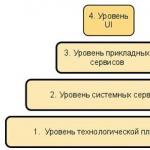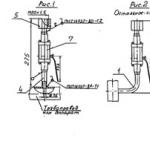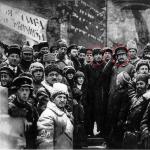Arkady Gaydamak biography. Arkady Alexandrovich Gaydamak
A well-known businessman decided to serve time in France.
Arkady Gaydamak, a well-known Israeli businessman of Russian origin, turned himself in to the police today to serve a three-year sentence to which he was sentenced by a court for illegally supplying weapons to Angola in 1993-1998.
According to the businessman's lawyer Patrick Klugman, this morning his client Arkady Gaydamak voluntarily surrendered to the Paris police and was taken into custody. According to the lawyer, in this way Arkady Gaydamak decided to pay off his debts to French justice in order to become a respectable citizen of this country in the future. In 2009, a Parisian court sentenced in absentia an entrepreneur who lived in Israel at that time to six years in prison for illegally supplying weapons to Angola in 1993-1998. According to investigators, at the height of the civil war in Angola, the ruling regime planned to buy weapons in France, but was refused and turned to the French businessman Pierre Falcon, who, together with Arkady Gaydamak, organized the supply of weapons from Eastern Europe, including Russia, estimated at almost $790 million
Three years later, the case was reviewed by the Paris Court of Appeal, which removed Arkady Gaydamak from the charge of illegal arms trafficking, since the supplies were ordered by the then Angolan government. Nevertheless, the businessman was found guilty of non-payment of taxes on the sold weapons. For this, he was sentenced to three years in prison and a fine of €375,000. In connection with the verdict, Arkady Gaydamak, who had French citizenship in addition to Israeli citizenship, was put on the wanted list, becoming effectively restricted to leave Israel and Russia, where he also visited. Obviously, in the end, he decided to serve a term in order to then settle in France and do business in this country.
Arkady Gaydamak was born on April 8, 1952 in Moscow. In 1972 he emigrated to Israel, taking the name Arye Bar-Lev. He lived in a kibbutz, worked as a loader, a sailor. Then he moved to France, where he created a translation company. In the late 1980s, he began selling metal, coal and oil from the USSR to the West. From the beginning of the 1990s, he acted as an intermediary in transactions for the supply of Russian weapons to Angola. He himself stated that he was an “oil trader” and transferred money for Angolan oil to the Russian government, which sold weapons. He also participated in the settlement of the Angolan debt to the former USSR, helped Lev Leviev to establish a trade in diamonds from the country. At the same time, he was engaged in business in Russia, was a member of the board of directors of the Moscow Bank (1996-1999), headed the board of directors of the Russian Credit Bank (2000-2001). In the late 1990s, he bought the Kazakh Tselinny Mining and Chemical Combine and the Kazphosphate group. After the scandal with the supply of weapons to Angola, he was hiding in Israel, which refused to extradite him to France.
He invested in the Israeli football club Beitar and the basketball club Apoel. He continued to buy up Russian assets: since 2005, he owned the Moskovskiye Novosti publishing house, on the basis of which he created the United Media holding, the poultry company Agrosoyuz LLC, and OJSC Meleuzovskie mineral fertilizers (Bashkiria). In November 2005, he was detained by the Israeli police on charges of money laundering through the Hapoalim bank. In 2007, he created the Social Justice Party in Israel, and in November 2008 he ran for mayor of Jerusalem (gained 3.6% of the vote).
A well-known Israeli businessman of Russian origin, Arkady Gaydamak, was arrested in Switzerland. His lawyer said that the reason for the arrest was the statement of the football coach, to whom Mr. Gaydamak underpaid €400,000 for his work. Meanwhile, according to Kommersant, the businessman is suspected of financial scams with amounts much higher, which were committed in several countries. France demanded his first extradition.
Businessman kicked off in jail
61 year old Arkady Gaydamak was arrested last Friday in a Zurich law office at the request of the Geneva prosecutor Dario Zani. The reason for the detention, according to the businessman's friends, was an anonymous report to the police that Mr. Gaydamak was using an invalid passport. As it turned out during the proceedings, at the border control point in Switzerland, the businessman presented a diplomatic passport Angola, issued to him several years ago and subsequently withdrawn by the authorities of this country.
Meanwhile, during the 12-hour detention of the businessman, it turned out that law enforcement officers of several European countries were looking for him, and the Zurich court issued a warrant for his arrest. Mr. Gaydamak has already been transferred to the pre-trial detention center in Geneva.
Lawyer Mark Bonnan said that the businessman was arrested in a nine-year-old case on a request that "was initially rejected, then reopened by the appellate chamber," despite the fact that Mr. Gaydamak returned all the money in dispute.
We are talking about a long-standing dispute between Arkady Gaydamak and French coach Luis Fernandez, who in June 2005 began coaching the Qatari club Al-Rayan, and five months later terminated the agreement, accepting an invitation from Arkady Gaydamak to head his Beitar team from Jerusalem. . Under the terms of the agreement with the Al Rayyan team, Mr. Fernandez had to pay €400,000 for the unilateral termination of the contract.
On the same day, the Qatari side provided Mr. Fernandez with bank details for transferring funds. Then the most interesting begins. Mr. Fernandez received instructions by fax from a certain Imperial Foundation company (registered in Curaçao) to transfer the above amount to its account in a Geneva bank. In mid-January, the payment was made. But not from the account of Mr. Fernandez, but from a certain Amatti SA, registered in the Seychelles. Later, Luis Fernandez claimed that it was not he who formally paid, but Arkady Gaydamak. "But the intermediaries stole the money," the coach stated. In addition, the coach's lawyers assured that in reality it was their client's money, and Mr. Gaydamak simply deducted it from his salary.
The problem is that Al Rayyan never saw any money. As a result, the Qatari club turned to FIFA in February 2006. In March 2008, the FIFA Players' Status Committee ruled that Luis Fernandez, who claimed that he had paid everything a long time ago, could not confirm this in any way, and ordered to pay off Al Rayyan within 30 days. Mr. Fernandez tried to challenge the decision in various instances, but to no avail. Finally, in November 2009, the FIFA Disciplinary Committee ordered the coach to pay the Qatari side €485,000 (original debt plus interest) under threat of a ban on any football-related activities. In 2011, Luis Fernandez still paid Al Rayyan, but in numerous protests filed, including in Swiss courts, he argued that the fact of payment did not mean that he was wrong, but was a forced measure under the threat of excommunication from football . However, for a long time, Luis Fernandez could not achieve anything. So, in 2010, his demand to prosecute Arkady Gaydamak, with whom the above-mentioned companies from Curaçao and the Seychelles are connected, was rejected by the Geneva prosecutor's office on the grounds that the applicant could not prove the fact of inflicting financial damage. Now the same complaint has been made a move.
Phosphate, weapons and debts
Meanwhile, the football problem is not the only and far from the most important one in Mr. Gaydamak's business. As one of the businessman's friends said, he flew to Zurich at the beginning of last week and this visit had several goals. Home - withdraw $400 million from an account in one of the Swiss banks, received back in the days of their close partnership with the government of African Angola. The problem was that, according to the agreements reached earlier, the businessman could receive cash only with the consent of his former partner in the Angolan business. Negotiations with his lawyers, which ended in vain, was the subject of the visit.
Shortly before his arrest, Mr. Gaydamak held talks with his other partner, Luxembourg financier Pierre Grotz. He managed the businessman's accounts in Zurich and the Netherlands for many years, but their meeting was devoted to legal rather than financial issues. The fact is that Mr. Gaydamak a few months ago filed a lawsuit in a London court against another well-known financier - Joel Mamman, who specializes in managing family capital in offshore zones. According to Arkady Gaydamak, she owes him about $2 billion, and Pierre Grotz allegedly was going to act as a witness for the plaintiff at the trial. Mr. Gaydamak's friends do not rule out that Mrs. Mamman, influential in the European financial system, could initiate his criminal prosecution in Switzerland.
France also has serious claims to the businessman. In 2000, the authorities of this country charged Arkady Gaydamak with illegal arms sales to Angola in 1993-1998. During the civil war in this country, the ruling regime wanted to buy weapons in France, but was refused. Then the Angolan authorities turned to Mr. Gaydamak, and he supplied 150 thousand shells, 12 helicopters and 6 warships from Eastern Europe for $790 million.
Arkady Gaydamak did not attend the hearings, and in October 2009 the Paris Correctional Court sentenced him to six years in prison for arms trafficking, tax evasion and corruption. In April 2011, an appeals court reduced the sentence to three years, leaving penalties only for non-payment of taxes. It should be noted that yesterday the French Prosecutor General's Office sent a request for his extradition to Switzerland.
[gazeta.ru, 11/26/2013, "Geneva holds Gaydamak": 42 French officials and politicians appeared in the indictment, including the son of former French President Francois Mitterrand, Jean-Christophe. And the final accusation was brought against Gaydamak and his French colleague Pierre Falcon. [...]
Gaydamak himself previously said that he was not trading in weapons, but in Angolan oil, which belonged to the government of the country, and transferred the proceeds to the accounts of state organizations in Russia, which supplied the Santos government with weapons necessary "to protect the legitimately elected leadership of the country from armed rebels."
[...] True, the French authorities failed to carry out the sentence. Gaydamak was then in Moscow and did business in countries with which France did not have an agreement on the extradition of convicts, and Falcon had diplomatic immunity, being the Ambassador of Angola to UNESCO.
Gaydamak had previously stated that after the verdict was announced, he would definitely come to France. “Whatever the decision of the court, I will go there. If this verdict is a guilty verdict, it will not stand a single appeal instance,” the businessman said. However, after this, the businessman was dragged out by a new criminal case - in Israel he was accused of laundering 650 million shekels ($170 million) through the Hapoalim bank. Gaydamak and his business partner Nakhum Galmor were charged. In February 2012, Gaydamak made a deal with justice, promising to deposit 3 million shekels (more than $800,000) into the Israeli treasury and pay a fine of 21,000 shekels (about $5,600). The businessman wrote out a check for the indicated amount right in the courthouse. In addition, he partially admitted his guilt "in obtaining profit through malicious, but not fraudulent means." In exchange for money and a confession of guilt, the Tel Aviv District Attorney's Office dropped the money laundering charge. - Inset K.ru]
Holland also has claims against Arkady Gaydamak. Back in the early 2000s, the businessman decided to buy a ten percent stake in the country's largest company, Thermophos, which specializes in the extraction and processing of phosphates in Kazakhstan. However, given the dubious reputation of the entrepreneur, the shares were not sold to him. Then he asked his partner Nachum Galmor to take part in the tender. He made an acquisition, and over a decade of work at Thermophos, he significantly expanded his influence in the enterprise, buying up a significant part of its shares. A few months ago, Mr. Gaydamak filed claims against Thermophos in an Israeli court. He even managed to sue the former partner for about $ 240 million in compensation, which he regularly paid. However, upon returning to Holland, Mr. Galmor turned to the police with a statement about an attempt to fraudulently take possession of the shares of the largest enterprise in the country. The Dutch police are trying to interrogate Arkady Gaydamak in this regard.
"He underpaid even me under the contract," said Israeli lawyer David Narodetsky, who had represented the interests of Mr. Gaydamak for many years, "so we were forced to part ways."
How Arkady Gaydamak sued Lev Leviev
In May 2012, the London High Court began trial of Arkady Gaydamak's claim against Lev Leviev. The amount of the claim is $1 billion. Mr. Gaydamak accused Mr. Leviev of not complying with the terms of a written agreement on the division of proceeds from the sale of Angolan diamonds, allegedly signed in 2001. The agreement itself disappeared, Chief Rabbi of Russia Berl Lazar was involved in the case, the plaintiff testified via video link from Israel, the defendant, sitting in the courtroom, denied all charges.
Sergey Mashkin, Afsati Jusoyti
A wide variety of people work in the world of business. Each of them chose his own path and reached a certain level of well-being. Among this team, special attention should be paid to a man named Arkady Gaydamak. We will talk about the fate of this entrepreneur in more detail in the article.
Birth and youth
The future well-known oligarch was born on April 8, 1952 on Ukrainian soil in the city of Berdichev. Although there is information that Arkady Alexandrovich was born in Moscow, and in Ukraine he already spent his childhood.
At the age of twenty, the young man moved to Israel, where he began his career as a worker in an agricultural settlement (in the local dialect - kitzub). After that, Arkady Gaydamak became a sailor on a Liberian oil vessel, on which the young man maintained deck equipment.
Onward to France!
On one of the days of his marine life, Gaydamak ended up in the port of Marseille. In this city, Arkady received a dismissal from the ship's boatswain and went ashore to rest. Already on land, a sociable and charming guy met French soldiers and got on a train with them, which was bound for Paris. Gaydamak got to the capital absolutely free of charge, as he traveled between servicemen, for whom tickets were issued at the box office free of charge at the expense of the state.
Once in the main city of France, Arkady became a member of a team of Russian painters and at the same time was engaged in the sale of already renovated apartments. Having collected the required amount of money, Gaydamak became a student at a technical school.

Intellectual labor
Having received a diploma from an educational institution, Arkady Gaydamak, whose biography is given in the article, became a practicing technical translator. Note that for each page of text processed by him, he received very decent money - $ 100. Since the guy worked very efficiently and quickly enough, it is not surprising that in a fairly short period of time he received a large client base as a reward.
Business expansion
Arkady Gaydamak (his photo below) turned out to be a rather decisive person, and therefore, having convinced himself of the success of his activities, he hired additional people in his office. And in 1974 he founded a company specializing not only in the translation of technical texts, but also in servicing various foreign delegations. The businessman paid his main attention to firms that supplied expensive industrial equipment to the Soviet Union.

On hook
When in 1982 Gaydamak dramatically expanded his activities and got the opportunity to make good money and live in a large, luxurious mansion, the French secret services immediately became actively interested in him. Counterintelligence officers suspected him of close cooperation with the KGB and repeatedly summoned him for interrogations. In this regard, information appeared (though not completely verified by anyone), as if the businessman had become a double agent. Naturally, the hero of the article always categorically denied all these suspicions.
Profile change
In 1987, Arkady Gaydamak somewhat changed the vector of his business and began to trade in the USSR. Trading entered the sphere of interests of the man. He resold coal, oil, metal products to Western countries. At the same time, the businessman was not on the territory of the Union, but still lived alternately in Paris, then in London, where he had his own property. During the year, the trader earned several tens of millions of US dollars, and from each transaction he had about 20 percent.

African citizen
Arkady Gaydamak is a trading businessman until 1992. And then he ended up in Angola after the sale of a large batch of oil equipment, which was paid for by the government of this state at the expense of "black gold" extracted from the bowels of the local land.
Thanks to his business acumen, Arkady Aleksandrovich managed to obtain the citizenship of Angola and take the post of adviser to the Minister of Foreign Affairs of this power. Somewhat later, Gaydamak personally said that he acquired the Angolan passport after he provided the country's leadership with a loan for a colossal sum of seventy million dollars.
Scandals
Gaydamak was closely associated with various frauds that concerned the return of the debt by the Angolan authorities of Russia. In the period 1995-1996, the businessman was a negotiator on the settlement of this debt. At the same time, he regularly denied his involvement in the implementation of illegal transactions that were carried out at that time.
Also, the press then noted that Arkady Alexandrovich contributed to the supply of Russian weapons to Angola. In late 2000, after French law enforcement began their investigation into arms trafficking, Gaydamak fled the country. Almost immediately, he was put on the international wanted list as a defendant in the case, but he was never arrested. In the summer of 2001, the case was closed due to numerous procedural violations, and the businessman himself moved to Israel.

In early 2012, Arkady Gaydamak (the businessman's family will be described below) received good news: the Israeli prosecutor's office dropped the money laundering charges against him in exchange for the fact that he had to admit his guilt and pay a fine of 21,000 shekels, and also contribute 3 million shekels to the state trust fund.
Continuing a career
Despite all the difficulties, Arkady Gaydamak did business in Russia as well. For three years (from 1996 to 1999) he was a member of the board of the Moscow banking institution. And in 2000, he headed the board of Rossiyskiy Kredit for several months.
welfare
Arkady Gaydamak, whose activities have always raised many questions among law enforcement officers, for a long time carefully concealed the size of his assets. Nevertheless, journalists were still able to find out what the oligarch owns. In particular, he owns the Angolan holding "Verda Territory", and Arkady also had a significant impact on the diamond and oil business of this African country. In addition, the entrepreneur owns Kazphosphate (Kazakhstan).
As for business in Russia, in 2003 Gaidamak got into the "chicken" business. In 2005, he created Agrosoyuz, which included six poultry farms both in the Moscow region and in Bashkiria.
Arkady Aleksandrovich, in addition, was a co-owner of a company called Ligastroyproekt, which acquired the Europark shopping center, located in the elite Rublevka district of Moscow.
Gaydamak is also known as an investor in the sports sector. In the summer of 2005, he acquired the Israeli football club Beitar and provided financial assistance to Hapoel basketball players. By the way, in 2013, Arkady wanted to sell his football team to representatives of Russia and Kazakhstan, but as a result of a legal confrontation between the oligarch and Hapoel fans, the club remained in the possession of representatives of Israel.
Arkady Gaydamak, whose work statistics indicate his highest professionalism in the field of making money, is also known as a media mogul. In 2007, he owned the United Media holding, which included several radio stations, a newspaper and weekly print publications. But in the summer of 2009, the entrepreneur sold his assets to Vladimir Lisin for an impressive amount of $23.5 million. Already in 2011, Arkady Aleksandrovich, in one of his many interviews, stated that he no longer had any business interests in the Russian Federation.

Political activity
In 2007, the businessman expressed his desire to become the mayor of Jerusalem in order to create a full-fledged world center of Judaism from this city. In the same year, Gaydamak created his own political party, called "Social Justice". In November 2008, the oligarch made an attempt to take the post of head of Jerusalem, but this venture was not successful, and he was able to gain only 3.6% of the votes of all voters.
Hobbies
It is authentically known that Arkady Alexandrovich is a zealous collector. He owns a large collection of the Empire style. In addition, Gaydamak is the most influential and authoritative sponsor of the Jewish community in the Russian Federation.
Awards
In 2005, the businessman received the Order of the Legion of Honor in France for the fact that in 1995 he contributed to the rescue from captivity of two French Air Force officers who fell into the hands of the Bosnians during the armed conflict in the Balkans.
It is noteworthy that Gaydamak, although he lives in Moscow, does not have Russian citizenship, but at the same time he owns passports of Israel, Canada, France and Angola.
Prison term
In 2015, Arkady Aleksandrovich decided to voluntarily surrender to the French authorities and for this he arrived at the French gendarmerie. According to the businessman's lawyer, his ward expressed a desire to serve a three-year sentence in prison for tax evasion, as well as to give the state 375,000 euros as a fine. Initially, the oligarch was charged with the illegal sale of weapons, but in the end he was acquitted in this case.

A source close to Gaydamak said that the businessman's decision to sit in a cell of his own free will was explained by the desire to get rid of debts and subsequently be able to travel to Europe, where his children live permanently.
Family status
Arkady Gaydamak, whose personal life has always been under the gun of representatives of the media, raised three children with his wife. Both of his daughters, Sophia and Catherine, were born in Paris. Since 2009, the girls have been actively promoting their own brand called Gydamak on the world market. The brand is represented by 22 boutiques on the European continent, as well as several in Hong Kong, the USA and the Middle East. Gaydamak's son, Alexander, has been living in London since 2010 and has owned Portsmouth Football Club since 2006.
On October 27, 2009, the Paris Correctional Court sentenced Arkady Gaydamak to six years in prison for illegal arms shipments to Angola, tax evasion, and corruption.
Arkady Aleksandrovich Gaydamak was born on April 8, 1952 in the Ukrainian city of Berdichev (according to other sources, he was born in Moscow, but grew up in Ukraine).
In 1972 he emigrated to Israel, where he took the name Arye Bar-Lev. He lived in a kibbutz (agricultural settlement), worked as a loader, a sailor on a tanker. Soon he left for France, where he created a translation agency that served mainly Soviet missions.
According to media reports, Gaydamak established relations with the Angolan government in the 1980s. The press claimed that Gaydamak soon began selling anti-insurgency weapons to Angola, despite an international embargo.
After the collapse of the USSR, the businessman invested in various projects in the post-Soviet territory. Gaydamak's name was associated with machinations around the return of the Angolan debt to Russia: in 1995-1996, it was Gaydamak who negotiated the settlement of the Angolan debt. However, the entrepreneur himself rejected all accusations of the illegality of the transactions made at that time.
In 2000, in France, Gaydamak was charged with the illegal sale of weapons to Angola, in connection with which the businessman moved to Israel. Israel refused to extradite him to France.
In Israel, Arkady Gaydamak acquired a number of businesses and sports teams. In particular, he bought the Jerusalem football club "Beitar", sponsored the basketball team "Apoel" (Jerusalem).
In parallel, Gaydamak developed business in Russia and the CIS countries. In 1996-1999, he was a member of the board of directors of Moskva Bank, in 2000-2001 he headed the board of directors of Rossiyskiy Kredit Bank. In 2006, he acquired the Moscow News publishing house (on the basis of which he created the United Media holding).
In 2008, Gaidamak's holding stopped publishing Moskovskiye Novosti, transferring this brand to RIA Novosti.
According to media reports, in July 2009 United Media were sold to the metallurgical magnate, the owner of the Novolipetsk plant, Vladimir Lisin.
It was also reported that Gaydamak owns a number of assets in the agro-industrial complex. According to the press, in 2005 he created Agrosoyuz LLC, which had six poultry farms in the Moscow region and Bashkiria. Gaidamak was also called the owner of OAO Meleuz Mineral Fertilizers in Bashkiria.
Arkady Gaydamak was also involved in politics. In 2007, he founded the Tzedek Hevrati (Public Justice) movement in Israel. In July 2007, in Jerusalem, at the first congress of the movement, Gaydamak announced that he would seek the resignation of the government of Ehud Olmert and support the leader of the Likud party, Benjamin Netanyahu.
In July 2008, Arkady Gaydamak announced his candidacy for the mayor of Jerusalem.
In the elections held in November, Gaydamak was defeated, managing to take only third place with 3.6% of the vote.
On October 1, 2009, Agence France-Presse, citing a statement from the Israeli Ministry of Justice, reported that the Israeli authorities charged Gaydamak with fraud and money laundering. Documents submitted to a Tel Aviv court accused Gaydamak of conspiring with high-ranking bankers to cover up $175 million in financial transactions.
According to the prosecution, Gaydamak tried to buy the Dutch company without informing the authorities that the money for the deal was being allocated in violation of the anti-money laundering law.
On October 27, 2009, the Paris Correctional Court sentenced Arkady Gaydamak to six years in prison for illegal arms shipments to Angola, tax evasion, and corruption. According to the investigation, at the height of the civil war in Angola, the ruling regime of José Eduardo dos Santos planned to buy weapons in France, but was refused. Then the Angolan authorities turned to the French businessman Pierre Falcon, who, together with Gaydamak, organized the supply of arms worth $790 million from Eastern Europe, including 150,000 shells, 12 helicopters, and six warships.
Arkady Gaydamak is a citizen of France and Israel. In addition, thanks to the contribution to the economy of Angola and Canada, he has diplomatic passports of these countries.
In February 2009, the press wrote that Gaydamak had applied for Russian citizenship (in the 1970s, Gaydamak gave up his Soviet passport in order to emigrate to Israel).
In recent years, the businessman has been living in Moscow.
Arkady Gaydamak is known as the largest sponsor of the Jewish community in Russia. In May 2005, he was elected president of the Congress of Jewish Religious Organizations and Associations of the Country (KROOR).
He was awarded the highest order of France - the Order of the Legion of Honor for the rescue in 1995 of two French pilots from Bosnian captivity.
Arkady Gaydamak is a collector: he owns a large collection of Empire style. In addition, he is the author of the book "Russian Empire" (2000).
Gaydamak has a son and two daughters. In 2006, Alexander Gaydamak, the son of an entrepreneur, became the sole owner of the English football club Portsmouth.
The material was prepared on the basis of information from RIA Novosti and open sources
Israeli businessman, a native of the former USSR Arkady Gaydamak, sentenced in absentia in France to three years in prison for laundering funds received from arms supplies to Angola in 1993-2000, was placed under arrest in Paris. He voluntarily surrendered to the French authorities in order to serve his prison sentence and then be able to travel freely to Europe, where his three children mainly live and do business.
The arrest of 63-year-old Arkady Gaydamak was announced yesterday by his lawyer Patrick Klugman. According to the defender, his client on Tuesday voluntarily arrived at the gendarmerie in the Paris region, after which he was taken into custody. "My client is starting a new stage in his life and has decided to complete all settlements with French justice," Mr. Klugman said to L'Express. Calls from Kommersant to Arkady Gaydamak's personal mobile number went unanswered yesterday, and his Moscow representative did not answer either.
Arkady Gaydamak was accused of illegally selling weapons to Angola in 2000. According to the investigation, in 1993-2000, together with the French businessman Pierre Falcone, he organized the supply of weapons from Eastern Europe for $790 million, of which Mr. Gaydamak himself allegedly received $185 million. ZIZ, was alleged in the 2008 indictment. In 2009, the Paris Correctional Court sentenced the businessman in absentia to six years in prison: he did not appear at any of the meetings. However, two years later, Arkady Gaydamak was acquitted by the Paris Court of Appeal, which held that the arms trade was not illegal. At the same time, the court ruled that Mr. Gaydamak should serve three years for not reporting his income to the authorities and not paying taxes, as well as pay a fine of € 375,000. Earlier Israeli media reported that he had already paid the fine, but called half the amount - € 150 thousand.
Mr. Gaydamak himself confirmed in an interview with Kommersant in 2011 that he participated in organizing the financing of Russian arms supplies to Angola. He then told how he raised $1 billion in Europe, which "Angola then paid to a number of Russian state-owned arms suppliers."
An Israeli banker familiar with Arkady Gaydamak's plans claims that his decision to surrender to the French authorities was dictated by the desire to "close all old debts in order to freely travel to Europe, where his children live." Kommersant's interlocutor noted that in Israel he is a defendant in several lawsuits at once. In July 2015, Mr. Gaydamak filed a new lawsuit with the Tel Aviv District Court against businessman Lev Leviev and Chief Rabbi of Russia (according to the Federation of Jewish Communities of Russia) Berl Lazar demanding payment of 750 million shekels ($195 million). This is the second lawsuit filed by a businessman connected with the Angolan company Ascorp. According to Arkady Gaydamak, he owned a 24.5% stake in this company (they were not legally registered), the activities of which were controlled by Mr. Leviev, but since 2004 he has not received any dividends from the sale of diamonds from Angola. The plaintiff then estimated the damage at $2 billion. In 2012, the High Court of London dismissed the claim, and in 2014, an appeal against this decision.
A month ago, Arkady Gaydamak himself was summoned to court as a defendant. Consultant Michael Etlin filed a lawsuit in the Tel Aviv District Court for over 3 million shekels ($780,000). In 2007, Arkady Gaydamak purchased a piece of land in Jerusalem for $32 million, where the Bikur Holim hospital was located. According to the plaintiff, his task was to increase the value of this property and attract investors to this project. In the event of the sale of the object, he was supposed to receive 1.5% of the transaction amount, but Arkady Gaydamak violated the agreements by refusing all payments after the transaction was completed.
Since 2009, Gaydamak's daughters Katya and Sonya, who were born in Paris, have been developing their own jewelry brand Gaydamak (formerly Prive), presented in 22 retail outlets in Europe (five boutiques are located in France), the USA, Hong Kong and the Middle East, according to the company's website. The son of Mr. Gaydamak, Alexander, lives in London, where he was forced to move in 2010. According to the Israeli newspaper Maariv, in 2009, at the request of businessman Yosef Troim, who filed a lawsuit against Arkady Gaydamak back in 2003, the Tel Aviv District Court seized real estate objects, which, according to Alexander Gaydamak, are his property. It was about a villa in Herzliya and an apartment in an elite area of Tel Aviv, the total cost of which was 57 million shekels (about $15 million).






